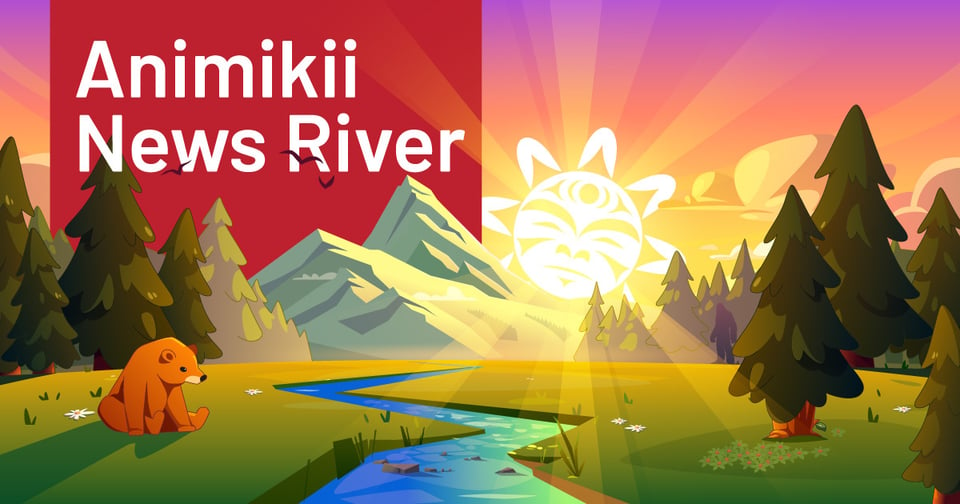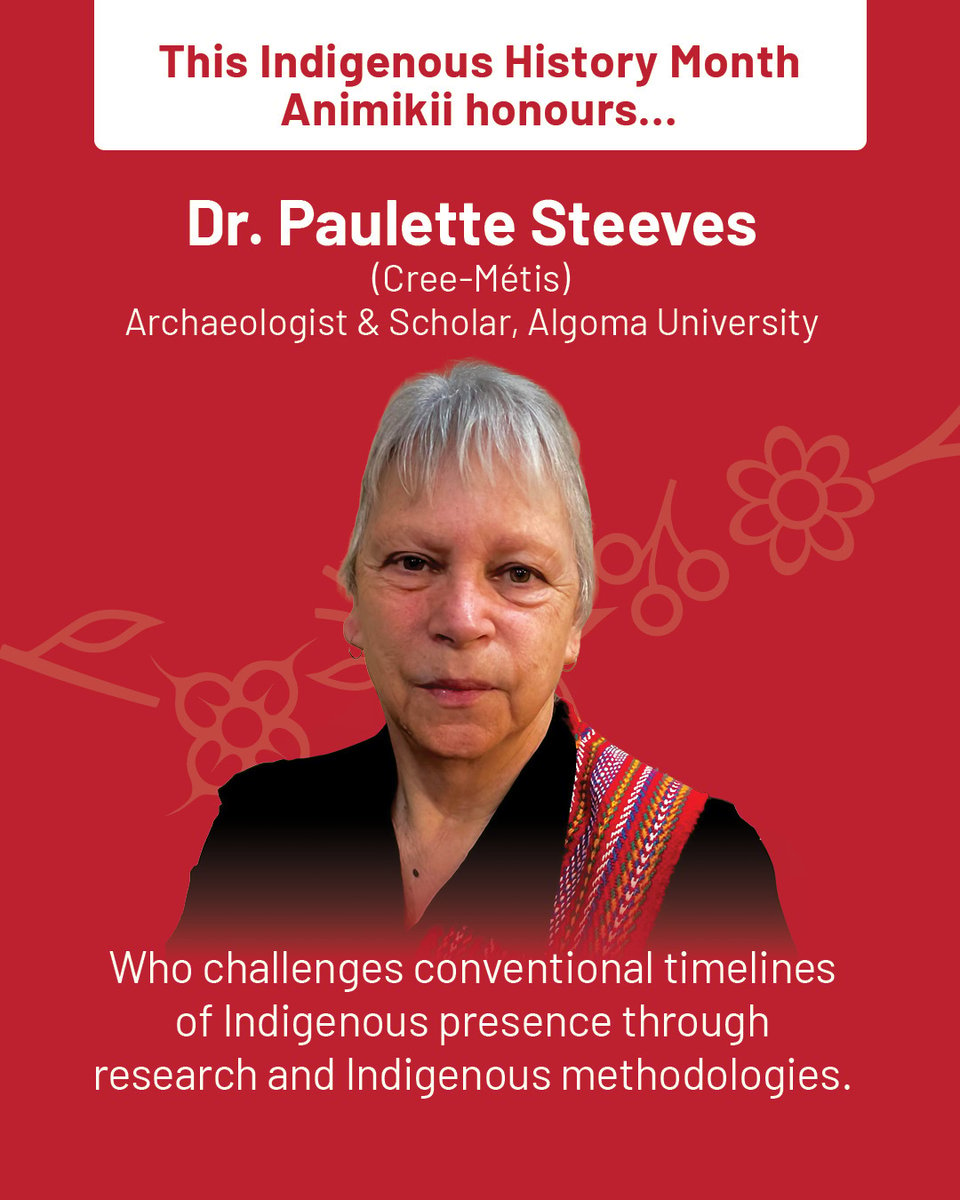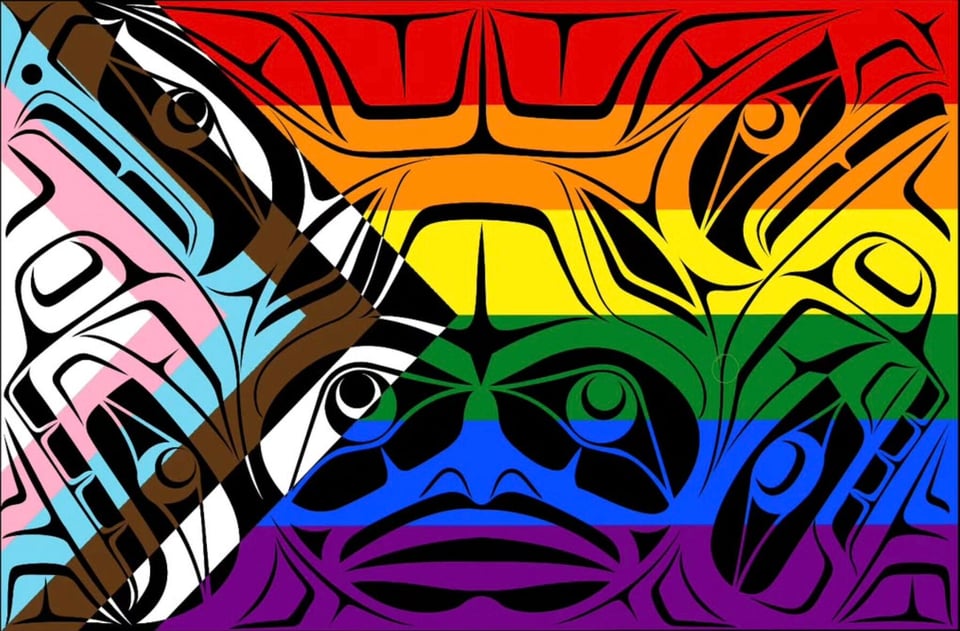Recognizing Indigenous knowledge in archeology.
“The future comes from the past. The future comes from the voice of Indigenous people who say they have been here for time immemorial” Dr Paulette Steeves

Boozhoo News River Readers,
Every week, we hand-pick the most important stories in Indigenous innovation, research, and culture. Stay connected to what matters.
If you enjoyed the stories in this week’s News River - invite others to join the conversation - forward this email to a friend or colleague!
We aim to arrive in your inbox each Wednesday at 12 noon PT. Thanks for being here!
This week’s stories include:
A story about how the structure of information - structures identity - and what it means for universities when dealing with pretendianism.
The CBC is seeking input from communities represented across 10 Indigenous languages in digitizing stories and archives recorded since the 1950’s.
Announcing the winners of the inaugural Amplify Awards, hosted by the First Nations Technology Council, honouring visionary leaders leveraging technology for community development and leadership.

Indigenous History and Heritage Month Series
The big picture: We’re launching a series this month highlighting researchers who integrate Indigenous knowledge into contemporary scholarship. First in our spotlight: Dr. Paulette Steeves (Cree-Métis), whose archaeological research has fundamentally shifted our understanding of human history in the Americas.
Why it matters: Dr. Steeves’ work demonstrates Indigenous knowledge is essential to understanding paleontology.
Key points:
Her book The Indigenous Paleolithic of the Western Hemisphere, reveals how colonial frameworks dismissed archeological evidence that didn’t fit predetermined narratives about Indigenous peoples.
Refutes the “Clovis First” theory with evidence of Indigenous presence dating back 60,000+ years, not just 13,000 years.
Combines archeological evidence with Indigenous knowledge to create more complete understandings of human history in the Americas.
What they’re saying:“The future comes from the past. The future comes from the voice of Indigenous people who say they have been here for time immemorial. The future comes from all those archaeologists that stuck their neck out, and even though they knew they would get violently critiqued and attacked, they published and reported their sites.” Dr. Paulette Steeves
Learn more: Steeves is featured in Walking with Ancients, a documentary from The Nature of Things that explores how new archaeological discoveries are challenging our understanding of when the first people arrived in North America, featuring findings from dig sites from the Yukon to Mexico.

We're honoured to share this stunning piece by Nusmata from the Nuxalk Nation where they have celebrated the Progress Pride flag and traditional line forms as one.Throughout this Pride Month we're also celebrating Two Spirit and LGBTQ2S+ people as sacred by sharing stories, art and history from the community. Chi miigwetch Nusmata for this beautiful interpretation of the Progress Pride Flag. 🏳️🌈 🏳️⚧️
Curated Articles:
Haíɫzaqv Nation’s Innovative AI Fish Monitoring Program Wins Prestigious Technology Award
After more than a decade of ongoing conservation research, a wild sockeye salmon monitoring program run by Haíɫzaqv Heiltsuk Nation has been awarded the Innovative Community or Organization Award by the First Nations Technology Institute. The award recognizes years of innovative research by the Heiltsuk Integrated Resource Management Department (HIRMD) crew members who work at the Koeye River weir. The research, which involved AI machine learning to identify and monitor wild sockeye salmon stocks in Haíɫzaqv territory, was a direct response to rapidly declining sockeye salmon populations and reduced monitoring programs by the federal Department of Fisheries and Oceans.
Inside CBC North's Indigenous Language Archives project
The CBC is seeking input from communities represented in the archives and organizations to determine the best ways to make these valuable resources accessible to the public. Spanning CBC North radio stories from the 1950s to the present day, the project captures voices, stories and traditional knowledge across 10 Indigenous languages: Inuktitut, East Cree, Oji-Cree, Dëne Sųłı̨né, Gwich'in, Inuvialuktun, Inuinnaqtun, North Dene, Tłı̨chǫ and Dene Zhatıé. Eight of these language projects are now complete. East Cree is on track to finish by January 2026, with Inuktitut scheduled for completion in 2030.
Amplify Awards Honour Indigenous Tech Leaders at Microsoft Vancouver
Modern technology is proving to be a powerful force for healing, connection, and cultural revitalization—especially when led by Indigenous perspectives. That was the driving message behind the inaugural Amplify Awards, hosted by the First Nations Technology Council on Tuesday at Microsoft Vancouver. The new awards event brought together Indigenous innovators and members of B.C.’s tech community to recognize visionary leaders leveraging technology for community development and leadership. Designed as a values-driven alternative to traditional tech gatherings, the Amplify Awards emphasized cultural strength, storytelling, and relationship-based innovation.
Montreal’s Mila institute aims to build network of Indigenous AI professionals
On Monday, a cohort of 21 Indigenous students from across Canada gathered at Mila, a Montreal-based research institute, to learn about artificial intelligence. This is where they’ll stay, for the next six weeks, learning as much as possible about the technology, networking and pitching ideas about how AI can be used to benefit Indigenous communities. The program, titled Indigenous Pathfinders in AI, was developed by Mila in partnership with Indigenous education charity Indspire, the largest non-governmental funder of Indigenous postsecondary education in Canada.
Google allocates $13 million in funding to strengthen Canada’s AI workforce
Google has created a new fund to expand artificial intelligence (AI) skills development and training programs across Canada as it invests heavily in the technology. The American internet search giant’s philanthropic arm, Google.org, is using its AI Opportunity Fund to provide approximately $13 million CAD in funding to four Canadian organizations. This includes the $5-million grant announced for the Alberta Machine Intelligence Institute (Amii) plus more than $2.7 million apiece to Vancouver’s First Nations Technology Council (FNTC), Toronto’s Skills for Change (SFC), and the Toronto Public Library (TPL).
The fix for pretendianism in academia requires Indigenous involvement
Verifying claims of Indigeneity means considering the significance of citizenship and kinship. And universities can’t do that by themselves. Universities in many countries are grappling with how to verify Indigenous identity in hiring, admissions and funding decisions. In our increasingly data-driven society, identity is never just claimed or denied. It is enabled, mediated and legitimized by the technological and information systems of modern bureaucracies. This has major implications for how pretendianism policies reflect reconciliation. To understand how Canadian institutions have mishandled pretendian policies – and how a more ethical approach might emerge – we must examine how universities structure information and how that information in turn structures identity.

